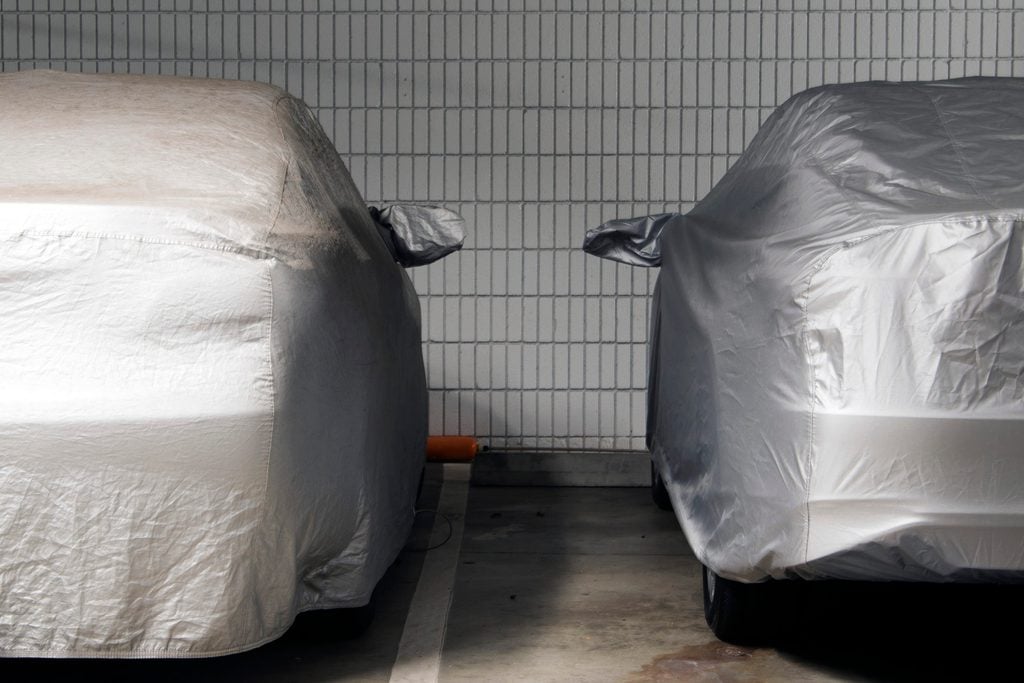
Cars are a big investment, and it’s important to keep them in good working shape. You might think that when it is sitting safely in your garage or driveway, your car doesn’t need maintenance, especially if you don’t use it very often. However, your car needs upkeep even—and sometimes especially—when you don’t drive it frequently.
Letting your vehicle sit for too long without using it might be one of the ways you’re shortening the life of your car. It can lead to a host of issues that will damage it over time (including damage to these weird car features).
If you don’t drive your car regularly, watch out for these signs that your car is about to die. It might convince you to take your car out for a short spin just to keep it in working order!
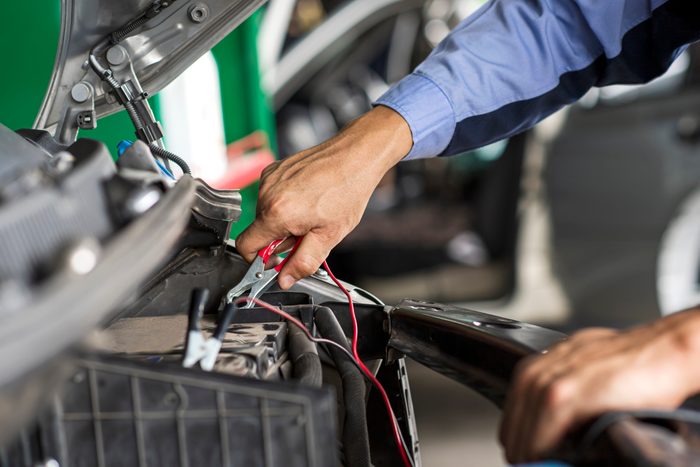
The battery loses its charge
It might come as a surprise, but your car is still working even when you’re not driving it. “Just like your laptop or cell phone, your car battery is running the computer inside your vehicle at all times,” says Joe Akers, director of operations at Cowles Nissan in Woodbridge, Virginia. If you’re not going to be driving your car for a few weeks, Akers recommends placing your vehicle on a trickle charger. “These chargers continue to supply power to a car battery when the vehicle is not in use,” Akers says. Oh, and don’t forget to remove the phone charger, dash-cam, and any other power-consuming devices plugged into the cigarette lighter port. “These devices slowly seep your juice, too,” notes Jesse Yuvali owner of Jesses’ Garage European Auto Repair in Sarasota, Florida.
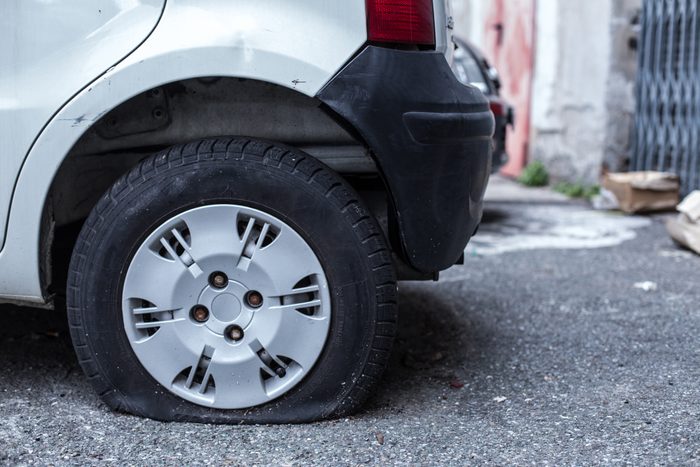
Tires get flat spots and lose pressure
Have you ever woke up with one side of your hair flat because you slept on it all night? The same thing happens when tires “sleep.” They develop flat spots when you don’t drive. “The weight of the car constantly putting pressure on the same part of the tires create a dent,” says Akers. It’s something you’ll definitely feel when you get back in the driver’s seat. Tires lose pressure when they sit too—about one to two PSI per month. “A quick spin around the block once a week will help avoid this problem,” Akers adds. Use a tire pressure gauge to check the pressure before you drive it again. You don’t have to worry about making it to the gas station to get air when you have a portable compressor at home. Learn why tires are actually the most important safety feature of your car.
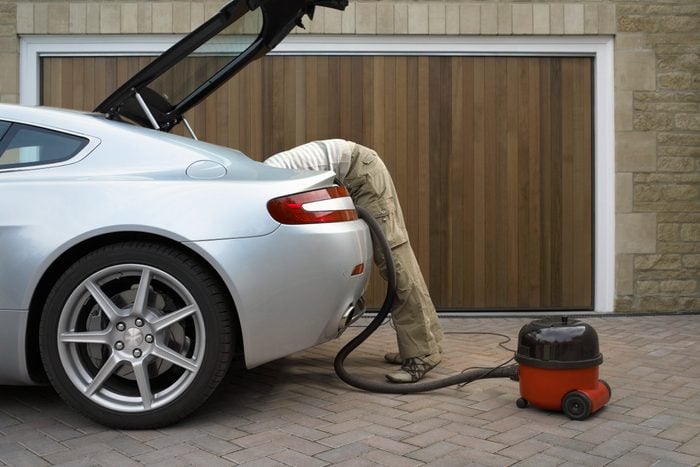
Ants move in
The French fries scattered under the seat and almost-empty smoothie cup are secretly sending out invites to ants. “Remove all garbage, particularly soda cans, food, sugary snacks, and so on, as they will attract ants that will find a way to get inside,” says Yuvali. While you’re at it, take out your running shoes and gym clothes. If you don’t, the contents will slowly and quietly brew a stink fest for your return. You won’t believe these 15 strangest things mechanics have found in cars.
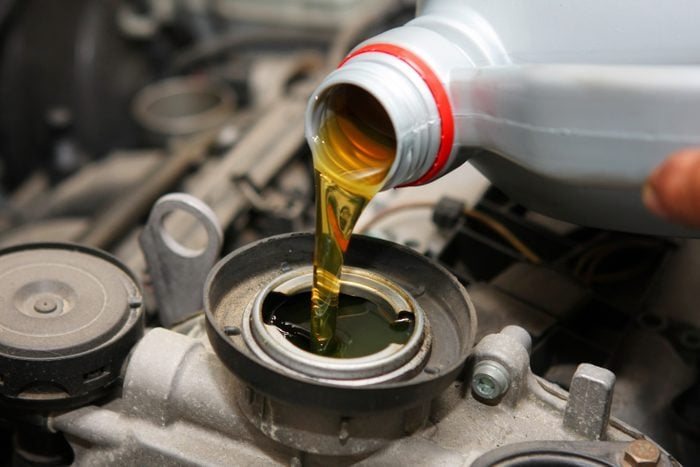
Fluids and oils go stale
The fluids in your car are essential for many components. For example, brake fluid is pressurized and gives you the power needed to brake. Without power steering fluid, it would take a lot of muscle just to turn the steering wheel. When a car sits for a long time, fluids get stale and can pool in certain areas. “Older oil won’t lubricate as fresh oil would,” says Yuvali. The oil keeps the metal components lubricated, so you don’t get that ticking noise of metal hitting metal, or worse, the engine overheating. Run the engine every two weeks for about 10 minutes (or take a short drive) to keep things under the hood lubricated. Here’s how often you should change your oil.
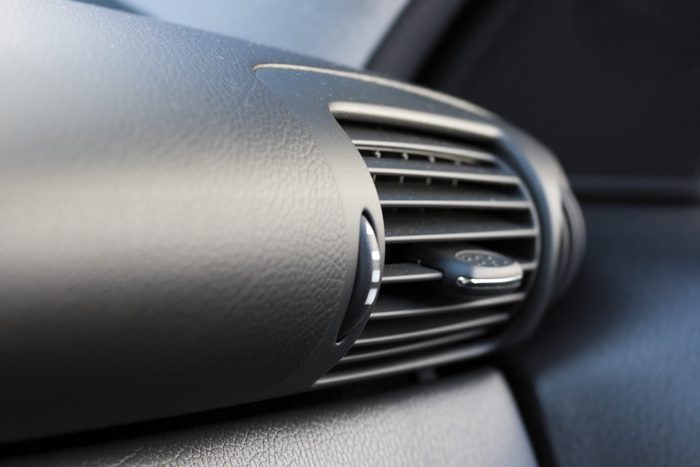
Seals dry up
Yuvali notes the air conditioning seals can dry out when you don’t drive your car, which leads to integrity issues, and you can lose freon. No freon means hot and sweaty car rides in the future once warm weather hits. “If you rely on your AC system, it needs lubrication, which you can achieve by turning the vehicle and the AC on for ten minutes,” he says.
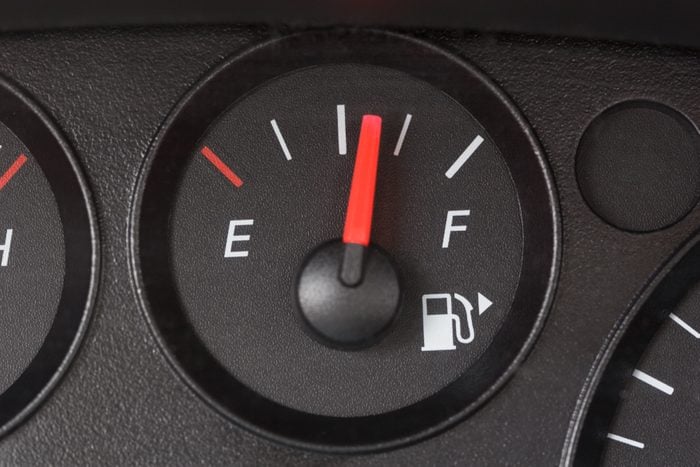
Consider your gas tank
Gasoline is a fickle thing in your tank. “If you leave the fuel tank near empty, it builds up moisture, which isn’t ideal,” Yuvali says. “However, if you fill up to the brim before parking it long-term, it will overflow if the weather gets warmer as the gasoline can expand. Additionally, gasoline goes bad after a short time.” If it’s sitting with half a tank, fill it up with fresh gas when you start driving again. Or add an enzyme fuel stabilizer to the gasoline to prevent stale gas; think of it as a probiotic for your gas tank. Check out these surprising things your car mechanic won’t tell you.
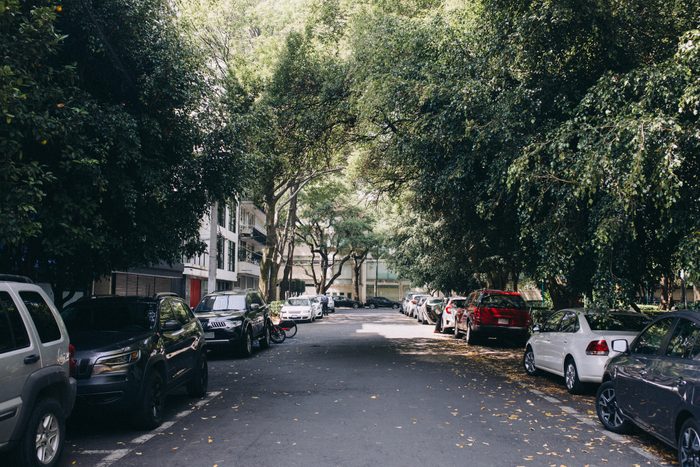
Damage from tree sap
Springtime brings the arrival of tree sap. A very sticky substance released naturally from trees. If your car is parked in the street or a driveway under a pine tree, you could find a sticky mess on your vehicle when you drive it again. Pine sap is extremely sticky and difficult to remove. It can also be problematic when it comes to the paint, particularly if the clear coat is damaged already, Yuvali says. Remove it with a tree sap cleaner as soon as you notice it, because as temperatures warm up, the sap heats up, causing more paint damage. Find out the things that people with clean cars have in common.
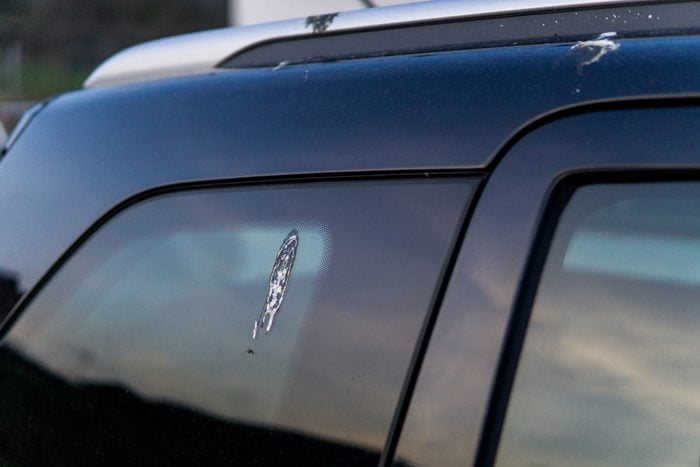
Damage from bird poop
A weekly carwash removes bird poop before it can cause any deterioration on car paint, but when your car is parked under trees or where birds regularly roost, like utility lines, a splattering of bird poop builds up quickly to an unsightly mess. Bird poo consists of uric acids, and that’s not water-soluble, which means it’s a nightmare to remove one spot, let alone dozens. Like tree sap, bird poop can penetrate the clear coat—the car’s protective layer. Wash it off as soon as possible with car wash soap, not dish soap, which isn’t formulated for cars. And abide by these cleaning tricks car washers won’t tell you.

You still need auto insurance
Yep, even if you’re not driving your car very much or at all. First off, most states require that you carry some form of insurance on your vehicle, says Leo Linval, a Farmers agent. The good news is some insurance companies voluntarily reduced rates during the sheltering in place orders. Farmers offered a 25 percent rebate on auto insurance for the month of April, for example. If you do want to lower your rates, you could try raising your deductible, lowering your mileage, or shopping around your insurance for lower rates, he says. Find out about insurance policies that aren’t worth the money.